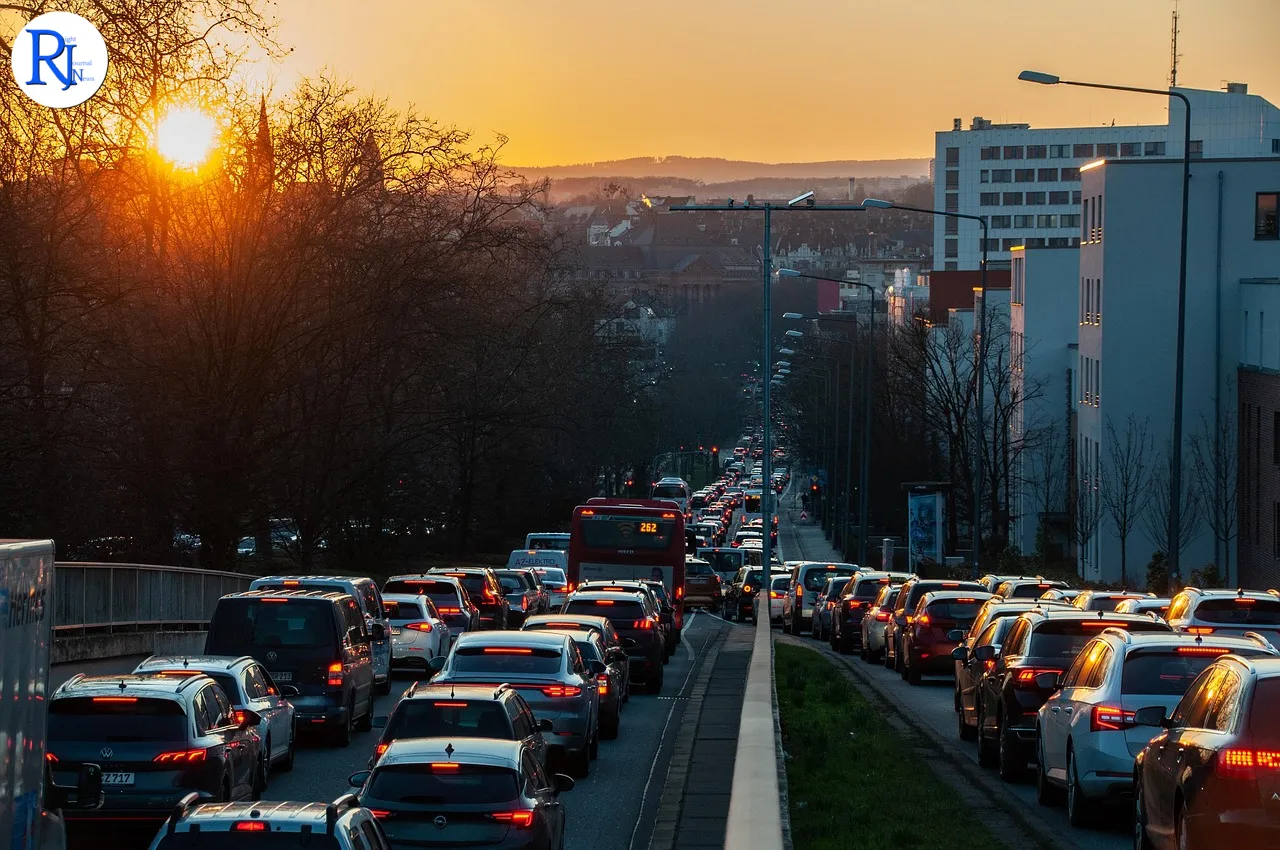Motorists planning to travel over the Easter weekend are being urged to prepare for significant delays, as the RAC warns of a “hat-trick of hold-ups” on the nation’s motorways. With millions expected to hit the road for the holiday, experts predict that congestion will peak at several key times, potentially leading to frustrating journeys for many. The RAC emphasises the importance of planning travel times carefully to avoid the worst of the traffic.
The warning comes as the Easter weekend traditionally marks one of the busiest periods on UK roads. This year, the RAC anticipates even heavier traffic due to the combination of school holidays, warmer weather, and the easing of travel restrictions. Motorists are advised to remain patient and consider alternative routes where possible.

Increased Traffic and Key Congestion Points
The Easter weekend, spanning from April 18th to 21st, is expected to see a surge in traffic as families and holidaymakers take to the roads. The RAC forecasts that the busiest times will be Friday afternoon, Saturday morning, and Monday afternoon, with the M25, M6, and M5 highlighted as likely congestion hotspots.
RAC spokesperson Simon Williams explains, “We anticipate a significant increase in traffic this Easter due to a combination of pent-up travel demand and favourable weather forecasts. Motorists should expect long delays, particularly on routes heading towards the coast and popular tourist destinations.”
Authorities urge drivers to check traffic updates regularly and consider travelling outside peak times to avoid the worst congestion. The RAC also recommends ensuring vehicles are road-ready to prevent breakdowns, which could exacerbate traffic delays.
Preparing for the Road: Expert Advice
Experts offer several strategies for motorists to minimise travel disruptions. The RAC suggests that drivers set out early in the morning or later in the evening to avoid the busiest periods. Additionally, checking the vehicle’s tyre pressure, oil levels, and fuel before setting off can help prevent breakdowns.
Williams advises, “Preparation is key to a smooth journey. Ensuring your vehicle is in good condition and packing essentials such as food, water, and a first-aid kit can make a significant difference if you do encounter delays.”
Traffic management teams will be on standby to assist with breakdowns and manage congestion, but drivers are encouraged to remain vigilant and patient. The RAC also recommends downloading traffic apps for real-time updates and alternative route suggestions.
Economic and Social Impact of Easter Traffic
The anticipated traffic surge not only affects individual travellers but also has broader economic implications. Businesses in tourist hotspots may experience a boost in revenue as visitors flock to these areas, though the congestion could also deter some from making the trip.
Local councils and transport authorities are working to mitigate the impact of increased traffic on residents and local infrastructure. Temporary traffic measures and increased public transport options are being considered to ease the burden on roads.
The social impact is also significant, as families take advantage of the long weekend to gather and celebrate. Traffic delays, however, could pose challenges for those travelling long distances to visit loved ones, potentially affecting holiday plans.
Potential for Long-Term Changes in Travel Patterns
The Easter traffic situation may also reflect longer-term changes in travel patterns. With more people embracing flexible working arrangements, the traditional peak travel times could shift, leading to different congestion patterns in the future.
Transport analysts suggest that monitoring this Easter’s traffic trends could provide valuable insights into how travel behaviours are evolving post-pandemic. This data might inform future infrastructure planning and traffic management strategies.
In conclusion, the RAC’s warning serves as a timely reminder for motorists to plan their Easter journeys with care. By avoiding peak travel times and ensuring vehicles are roadworthy, drivers can help minimise the impact of the anticipated traffic surge. As millions prepare to embark on their Easter travels, patience and preparation will be key to navigating the busy roads ahead.

